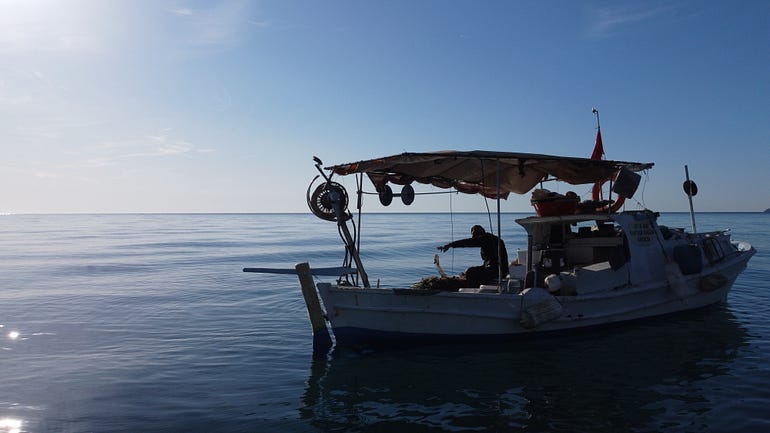
What would you do if meeting Picasso, Renoir, Joan Miro, T.S. Elliot, Mattise and Monet were not enough to appease your excitement?
Since not much happened in Kansas, you thought a better idea would be to go where the action is. At that time, that would be WWI. Brimming with excitement you volunteered to join the army.
But 24 hours later, depressed because you were rejected, you devised a plan to join the Italians at the front driving an ambulance.
They were short of help, so they took you.
But then a mortar round almost killed you, and machine gunfire almost cut your legs in half, but you earned your medal of valor. “La Croce al merito de Guerra.”
You were 18 years old.

At the Red Cross Hospital in Milan, you met your angel, Agnes von Krawosky, seven years your senior. But that didn’t make that much difference to you. Seduction was in your blood deeper than the shrapnel.
Before long and almost healed, you decided Paris was to be your best new destination. There you met some of the greatest masters of the 20th C.
But your angelic nurse and your medal weren’t enough to slow you down. You start to miss the action. Fate and the Cupido Gods brought you to Pauline Pfeiffer, whom you married hastily as she was most supportive. But Agnes was your first true love, so you kept your hopes alive, thinking one day you both would be reunited.
You found yourself a gig as a foreign correspondent for The Toronto Star covering the Spanish Civil War.
Your wife, Pauline, wasn’t happy with the arrangements and wanted to discuss it further, but you true to your impulsiveness and impatience divorced her instead.
Your writing was powerful, intrepid, and chivalrous and brought you much praise. Your presence was strong and dominant just like your stature at 6’1” with broad shoulders and a handsome bearded face.
Your reputation preceded you and everyone knew about your addiction to fast life, easy women, and unknown dangers. Nobody applies to cover a war on an ambulance. You were a pioneer in that sense too.
The more pain you’d suffer, the more you went back into the action.
Unstoppable, indomitable, and fearless.

The mortar round exploded inches from where you were standing, having just returned from distributing chocolate and cigarettes to the guys in the trenches.
It was 1918.The end of WWI.
You blacked out and when you reopened your eyes, you were in front of what you would later call your angel of mercy.
Agnes von Kurowsky.
She cared for you in a manner that made you feel like you were in a different reality. In a different realm.
For the first time in the longest, you heard the soothing voice of a woman with an angelic tone and a velvet touch.
But, inside your head, you couldn’t forget the events that had taken place during the fighting. Those ghosts followed you day and night throughout your entire life.
But that was just part of it. Violence followed you like a magnet.

But the man was accident-prone. Maybe such was the case when he miraculously survived a major plane crash in Africa in ’54 only to have a second one within hours.
He cheated death by inches, over and over again.
Despite his injuries, Hemingway accompanied a friend and his wife on a planned fishing expedition in February, but the pain caused him to be irascible and difficult to get along with.
When a bushfire broke out, he was again injured, sustaining second-degree burns to his legs, front torso, lips, left hand, and right forearm. Months later in Venice, his wife, Mary Walsh reported to friends the full extent of Hemingway’s injuries: two cracked discs, a kidney and liver rupture, a dislocated shoulder, and a broken skull.
In Paris, while in the restroom he suffered a serious concussion when he thought he was pulling the toilet chain, but instead he dislodged the ceiling arrangements and the whole thing collapsed on his head.
He liked his women but maybe he didn’t play fair. True, he was left waiting for his bride-to-be, Agnes, who after all the preparations were made, changed her mind and ended up marrying a Captain in the Spanish Army.
Some close friends said he never recovered from the heartache.
Among all the chaos and the travels and the breakups, he’s still managed to get not just the Pulitzer Prize, but the Nobel Prize as well.
Both, back to back.
The former in ’54. The latter in ’53 for “Old Man and the Sea.”
He loved Paris and hated it at the same time. He met the greatest artists and authors and forged great relationships with them, including Ezra Pond which whom he went through long drinking binges, which were starting to cause him problems.
But when too many of his friends started dying and when he almost died himself, he decided it was time to stop.
He fell in love with more women than he could count, married 4 of them, and would have kept on going if it wasn’t because bad health got in the way.
The years have a way of weighing heavily as one gets older and his case was no different.
Still, his work reflected the admirable instinct of human beings to persevere against the odds. He never allowed the elements to conquer him as his survival and that of his friends depended on it.
A complicated man, he challenged life at every turn, and if he wasn’t satisfied with the outcome, he thought something must be wrong with the challenge itself, so he’d go for it again.

When his own father committed suicide, he said “I’ll probably go the same way.” His wife at the time, Mary Walsh wasn’t pleased at all to hear such a statement but he brushed it off as a figure of speech, nothing else.
Little did she know that on July 2nd, 1961, he would fulfill that claim using his favorite shotgun.
Ernest Hemingway was 61 years old.
He was a true American classic in many more ways than one and will forever be remembered as such.



